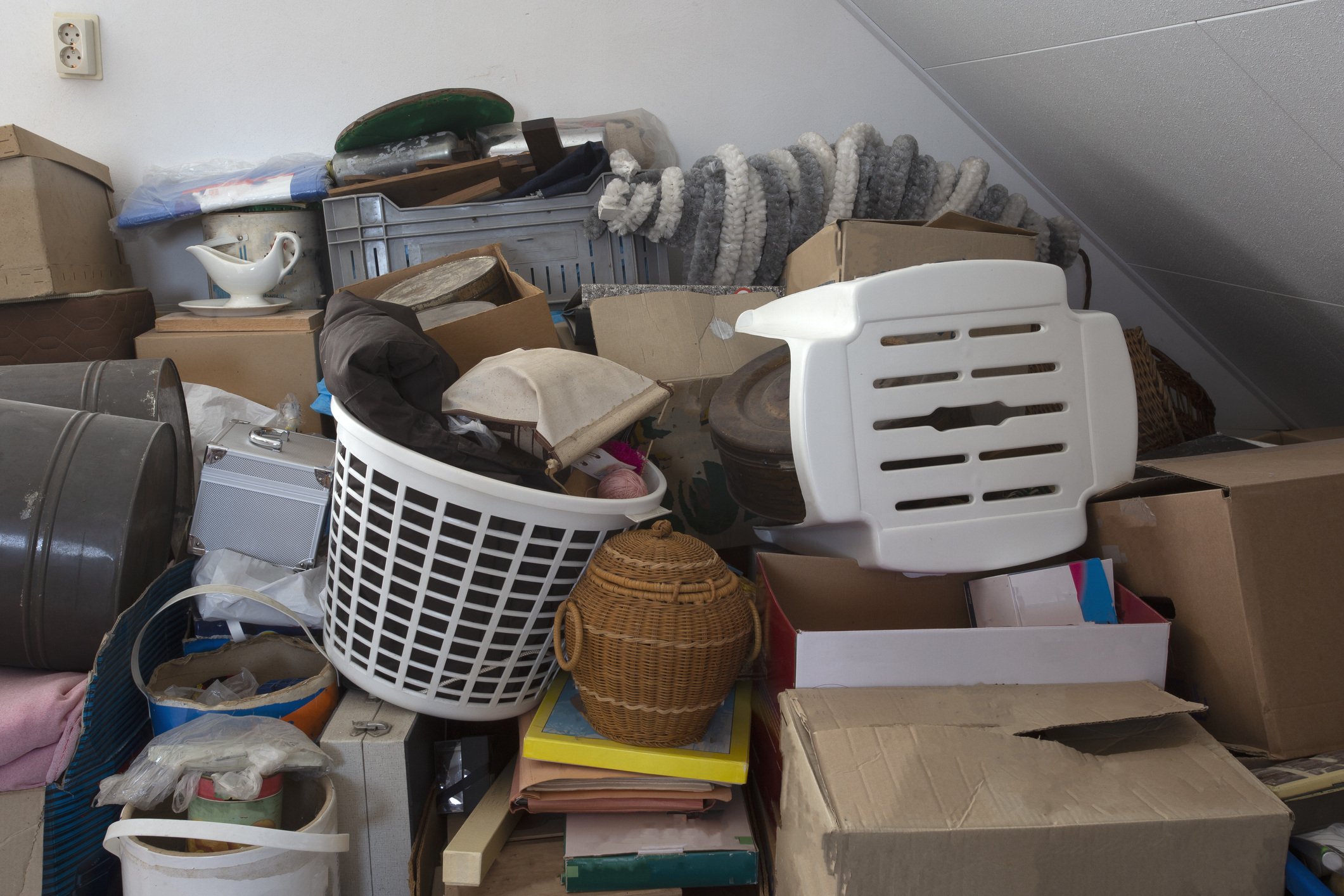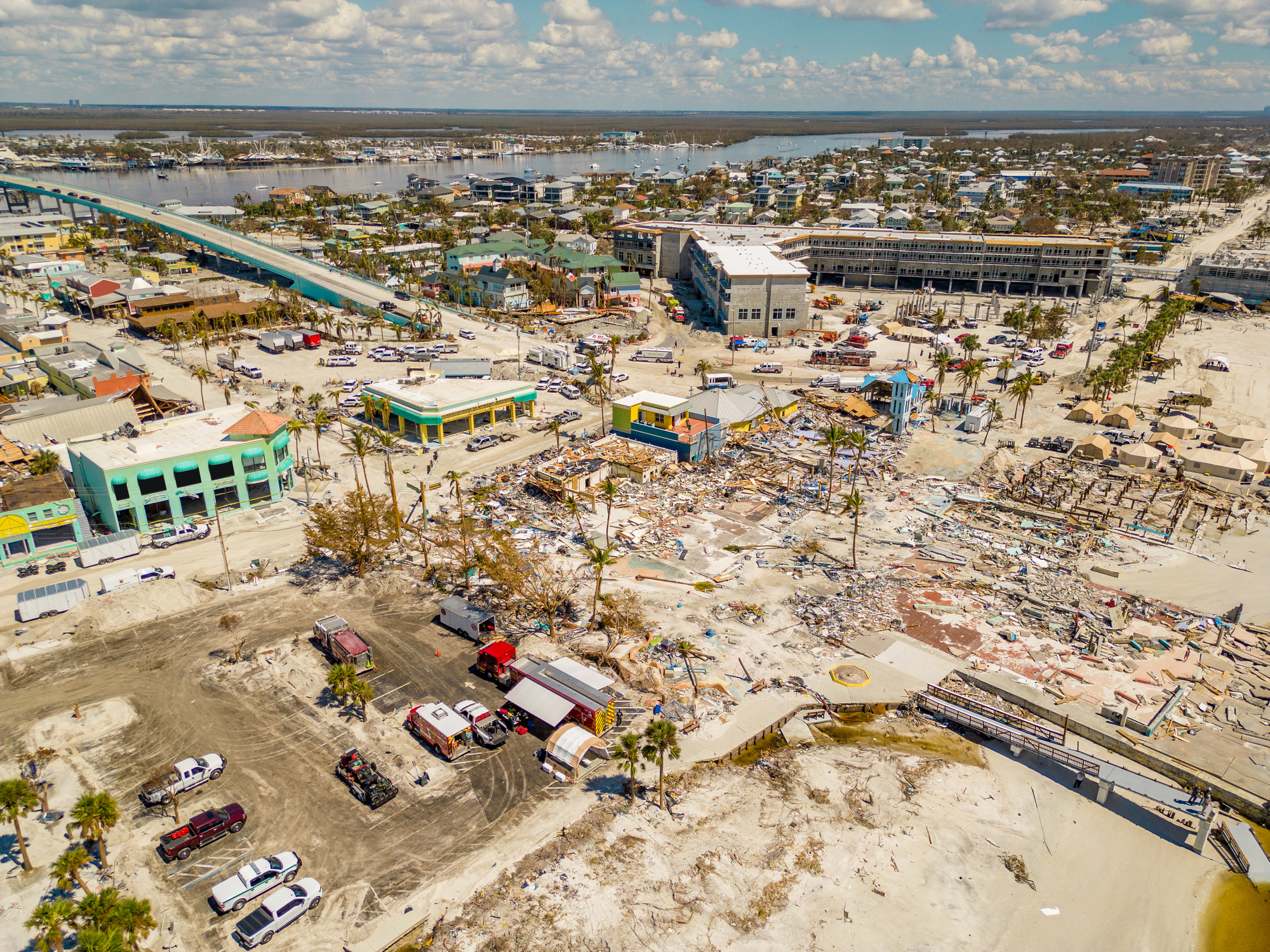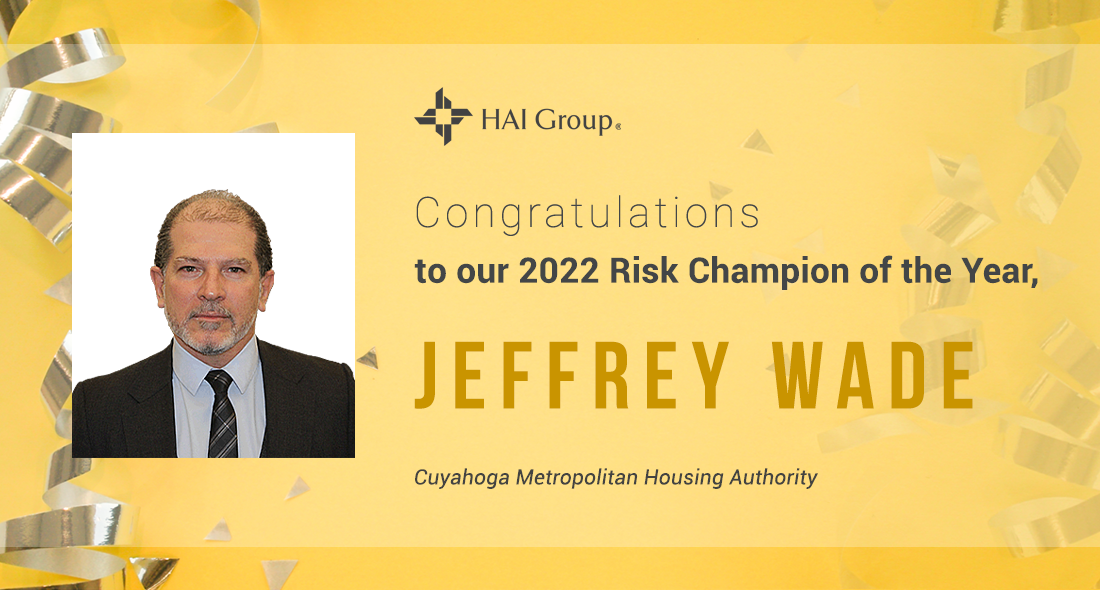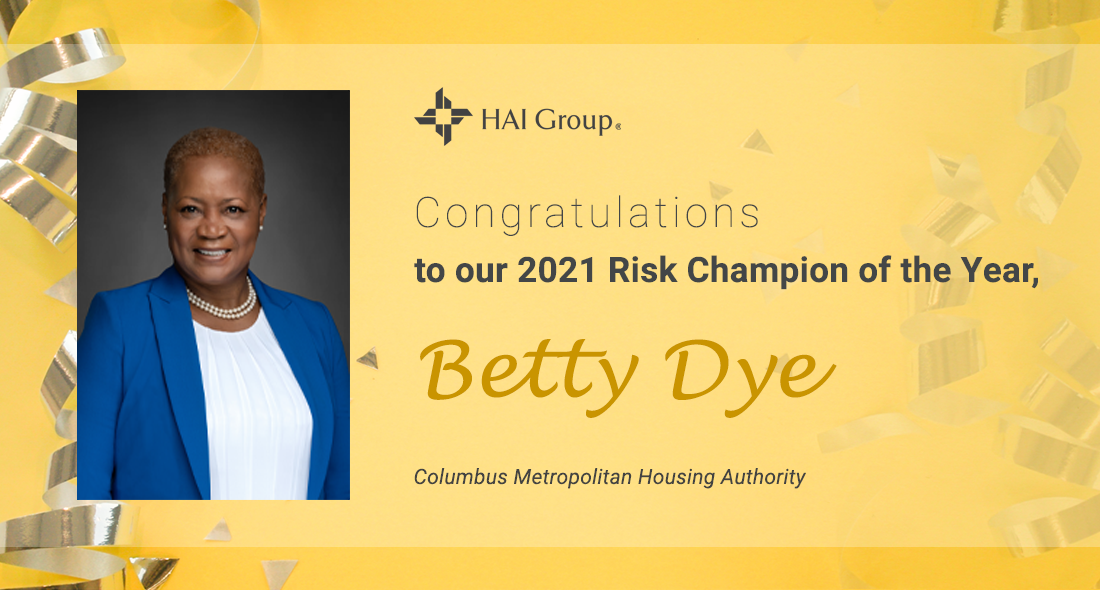Your public or affordable housing organization can't develop an informed response to emerging risks if you don't know what they are. HAI Group has your back.
Our insurance and risk management professionals constantly monitor commercial housing trends so that we can report back to our partners and policyholders. Here are three emerging risk trends to stay on top of going in 2023 and beyond:
1. Improperly installed security bars

While security bars may provide an added layer of security in high-crime areas, they can also be a hazard when they block egress from units, said Elizabeth Owens, HAI Group's director of risk control and consulting.
"Security bars should be installed with a quick-release latch that can be accessed from the inside," she said. "In a fire, seconds can make the difference between life and death. When possible, units should have multiple clear paths of egress for residents to utilize in the event of a fire. Units should be inspected for housekeeping/hoarding issues that block the exits from the units."
To ensure that these security bars don't become a danger to the residents, HAI Group recommends the following:
• Install security bars with a quick release manufactured by reputable companies.
• Hire a third party to install the bars, especially if your staff doesn't have this expertise.
• Ensure that the security bars are free from rust and that latch mechanisms are oiled and well-maintained.
• Test the quick-release latch when in the unit for work orders, housekeeping inspections, and turnovers; keep all testing documentation.
• Provide quick-release latch basic training and written reference materials to residents during lease-ups and renewals to ensure they understand how it functions; have residents sign off that they received training.
• Display stickers on the interior of the windows to offer directions on how to operate the quick-release latch.
Always contact your local fire department or authority having jurisdiction to ensure that your security bars meet your local laws and codes.
2. Unsafe and unsanitary conditions

During the peak of the COVID pandemic, many housing organizations cut back on routine work orders and only completed high-priority or emergency work order requests. The backlog of work orders in conjunction with the “great resignation” of employees has created the perfect storm of unfavorable conditions on some properties.
"As COVID restrictions are lifted, we recommend prioritizing the backlog of work order requests and conducting unit inspections to document current conditions," Owens said. "Try to develop relationships with local, reputable tradespersons to establish a discounted hourly rate and gain priority for your calls. Listen and engage with residents to hear their concerns and provide them with an executable action plan."
Why is it important to catch up on maintenance work orders? You don't want to put your residents in harm's way. Also, your organization's reputation and financial well-being are potentially at stake.
There have been several recent examples of residents working with legal representation to improve the conditions of their apartments. Over 160 tenants are participating in a class action against multiple housing and property management organizations. The complaint outlines “deplorable conditions, including but not limited to severe mold and rat infestation, defective plumbing, the collapsing of ceilings, among other health and safety issues.”
The complaint describes years of requests for corrections and improvements that were ignored. A “failure to provide sufficient security” due to “inadequate lighting and non-existent or inoperable cameras” was also listed in the complaint. This entire complaint began with an anonymous tip to the local Legal Aide Service. Legal Aide Service then triggered the city to bring in inspectors to document conditions. The local press was on hand during these inspections and published their findings. These types of articles can be extremely damaging to the reputation of the apartment complex, the property management company, and the property owners.
3. Electric bikes, scooters, and hoverboards
The popularity and availability of micro-mobility devices such as electric bikes (e-bikes), electric scooters (e-scooters), and hoverboards have drastically increased in the last several years. These modes of transportation are all powered by a lithium-ion battery that can be a fire hazard for housing organizations.
"There are many e-scooter/e-bike rideshare programs across the country, and hoverboard costs have greatly decreased, making them accessible to more consumers," Owens said. "Some residents have started to use these modes of transportation to increase their income. They collect these e-scooters and charge them in their units in return for payment. Others are utilizing e-bikes to make deliveries through delivery service apps."
In 2018, New York City Housing Authority experienced its first fire related to this exposure. Since then, the housing authority has reported 25 fire investigations involving lithium-ion batteries. One of these fires resulted in the death of a resident. Due to this increase, the housing authority has decided to prohibit all e-bikes and e-scooters from their properties starting October 15, 2022. A copy of the notice can be found here (this site offers additional information on the dangers of e-scooters).
In March 2023, New York City Mayor Eric Adams signed legislation that bans e-bikes, e-scooters, and hoverboards that aren't UL-certified. The legislation could be a sign of what's to come in more cities and states.
Interested in learning more about the coverage solutions we offer? Connect with a member of our Account Services team.

Includes copyrighted material from a company under the HAI Group family, with its permission. this post is for informational purposed only and is not intended to provide legal advice, and shall not be relied on as such. We strongly recommend consulting with legal counsel or an appropriate subject matter expert.






